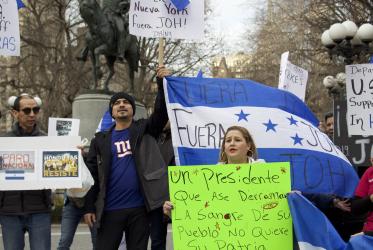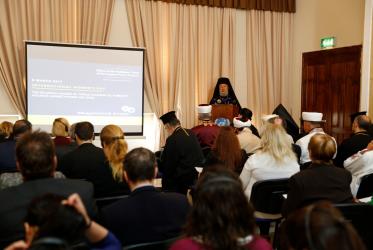Displaying 61 - 80 of 165
South Sudan church leaders offer Christmas season roadmap for hope
21 December 2017
Trying to do good for the world
18 December 2017
World Week of Peace highlights “culture of love and resilience”
27 September 2017
Rebecca Dali: My faith in God motivates me every second
24 August 2017
WCC, LWF host recipients of Right Livelihood Award
02 November 2016
South Sudan: role of civil society vital in seeking peace
04 October 2016
WCC general secretary reflects on peace in Palestine and Israel
20 September 2016
In Ghana, women bring open minds, honest words
05 July 2016








